What are State of the Environment (SoE) reports?
State of the Environment reports (SoE) www.ces.vic.gov.au/CES/... are made on two levels: state and national. The National Reports are made on the following themes: Atmosphere, Biodiversity, Coasts and oceans, Human settlements, Inland waters, Land, Natural and cultural heritage, Australian Antarctic Territory.
The last published State of the Environment Australia Report was in 2006.
Most Australian states have prepared full SoE reports since the early 1990s, but Victoria has only just published her first, in 2008. Any previous reports were minor and had little or no comparability with the standard and methods that full SoE reports are expected to have.
Unfortunately, this report has a very poor standard. It isn't really a report; it is a policy document, which cites other reports, second or third hand ones.
Legal status
Since 1999, Australian Government legislation mandates the preparation and tabling of the national state of the environment report in Parliament through the Environment Protection and Biodiversity Conservation Act 1999 (section 516B)
1. The Minister must cause a report on the environment in the Australian jurisdiction to be prepared in accordance with the regulations (if any) every 5 years. The first report must be prepared by 31 December 2001.
2. The report must deal with the matters prescribed by the regulations.
3. The Minister must cause a copy of the report to be laid before each House of the Parliament within 15 sitting days of that House after the day on which he or she receives the report.
States and territories
[This para newly inserted on 10 December 2008] These reports are not made under the same legislation as the Commonwealth SoE Reports and their comparability is moot. Under the Australian Constitution the States have control over many aspects of the Environment, particularly with regard to land and water. It is not clear what, if anything, might be done where Commonwealth and State Reports and recommendations contradict each other.
Most State and Territory governments prepare state of the environment reports on a regular basis, and it is a legislative requirement in New South Wales, ACT, Tasmania, Queensland, Victoria and South Australia. In New South Wales local governments are legislated to prepare regular SoE reports.
The first ever real Victorian State of the Environment Report (2008) is finally out.
The dead give-away that this isn't a serious ecological report is that it treats us as 'consumers' instead of citizens. [Citizens contribute fully to their country; consumers just hand over cash and go away and shut up].
It contains informed statements which make Victorian economic growth policies look stupid and dangerous to public safety. Unfortunately this report, pretending to be critical, sets objectives which often look as if they would be impossible to coordinate (although some might be achieved briefly through combinations of strong propaganda and force) and which are mutually contradictory. This was probably the result of having a committee which could not really reach agreement between scientific reality and economic ideology, so what we get is a cognitively dissonant mix. My heart goes out to the sincere participants in this compilation.
Most of those whose backgrounds have been made available to the public in the document (you have to click the links) are economics, business or management. Trish Caswell used to be the ACF President, and when she was, she was very vigilant to ensure that population policy was kept off the agenda. I would call her an industrial relations person. There is a dairy irrigator, a council CEO. A primary industry veteran. These people are billed as having knowledge of sustainability, but, most would not have scientific knowledge of ecological systems. I think we are again victim to the Victorian government's idea that 'sustainability' is an economic concept. Can this really pass muster under the EPBC Act? It doesn't have to.
You can read the credentials of the reference group here.
Co-Chairs: Dan Atkins,Kate Vinot,
Members: Alex Arbuthnot, Cheryl Batagol, Dr Sarah Bekessy, Patricia Caswell, Catherine Dale, Russell Higgins, Gillian Sparkes, Mick Murphy, Terry Walshe, Rob Gell, Kelly O'Shannassy
Sarah Beckersley is the only one who inspires confidence in me as an ecologically educated person, however there are three in the unhighlighted list who I don't know.
It is actually pretty amazing that a committee with such obvious business bias and apparently poor aggregate biophysical science background has been allowed to put forth such a report. The report is full of cliches and lacks the profound knowledge of the 2001 State of the Environment Report. We can see why.
The Report, such as it is:
The trick is to go to the end first, but I'll start at the beginning here.
A good beginning:
The Victorian State of the Environment Report 2008 says that:
The future cannot be an extension of the past
Australia’s total material requirements are increasing and are more than twice that of other OECD countries.
Victoria's population growth is a major driver of environmental degradation.
Population growth, settlement and consumption patterns, and climate change are the key drivers of environmental degradation in Victoria.
"Population growth and settlements Victoria’s population growth, increasing affluence and the expansion of our cities and towns, have contributed to unsustainable levels of resource consumption and waste production. This has direct environmental impacts through changes in land use, from conservation and agriculture to cities and towns. To supply our cities and towns, we harvest water for residential and manufacturing purposes, change river flows, discharge wastes to land and sea, remove native vegetation and send damaging gases into the atmosphere."
"Lifestyle factors, such as the demand for larger homes and the rising cost of city living, are increasing the demand for development on Melbourne’s edges. These areas are poorly serviced by public transport due to low urban density and a focus on motor vehicle dominated urban design rather than transport systems which have the least environment impact, and which reduce our vulnerability to future economic shocks."
"Changing social patterns have led to a reduction in the number of people per household. At the same time there has been an increase in the size of houses which are often poorly designed for the local climate with low thermal and water efficiencies.These trends, combined with a growing population means we need more houses than ever before. This drives demand for household furniture and appliances, as well as heating and cooling and has led to an increase in the consumption of raw materials, water and energy."
"Victoria is largely banking on carbon capture and storage to deliver major reductions in our State’s emissions. Reliance on a technology that may not be ready until 2030 or later risks emissions continuing to rise for some time."
"Business as usual isn’t going to work."
"We must take strong action, not just make further aspirational policy commitments."
Yes, they must - only, unfortunately, they don't.
"The last assessment of river health in 2004 found that only one fifth of major rivers and tributaries in Victoria were in good or excellent condition. In 2008 nine out of ten Victorian basins in the Murray Darling Basin were found to be very poor health."
"The plants and animals which depend on our inland waters also indicate the health of rivers and wetlands."
"Unfortunately the news is not good. 21 fish species, 11 frog species and 29 species of waterbirds are threatened, and only 14% of riverside vegetation along major rivers and streams in Victoria was found to be in good condition, with most being patchy and interspersed with weeds."
"Wetlands are also very important for environmental health, but no statewide study of the extent of our wetlands has been undertaken since 1994.At that time, more than a third of our naturally occurring wetland area had already been lost and over 90% of the wetlands on private land had vanished – often drained for agriculture or housing developments. In August 2008, groundwater levels in half of the most highly developed or potentially stressed groundwater areas were the lowest on record."
"Water management in Victoria is rapidly increasing in sophistication and accountability, and Victoria is recognised for its leadership in water management."
That remark about leadership in water management and others about Victoria's Water Our Future are a dead giveaway that the Vic Government had influenced the report, if only in the language - you can tell by the empty cliches. In fact, one of the 'reference group' is Cheryl Batagol, currently the Chair of Melbourne Water.
(Personally I don't recognise Victoria as a leader in water management; I think it's a leader in water propaganda. PlugThePipe and PipeRightInc and FairWaterUse would agree, I think.)
"However, the degraded state of many of our rivers shows that the way we manage our water resources has not secured the health of our inland waters."
"Millions of dollars are being spent on efficiency and securing supply, but the impact of climate change means that water allocated to the environment may not be enough to secure environmental health. Sharing water between competing uses ultimately involves social and therefore political choices. To date, the environment has been the loser. Difficult decisions must be made as water availability declines and pressures on our environment increase. Many inland waters are in poor condition and in the context of ongoing drought and climate change, their future health is uncertain."
But these ...um... policy-writers are prepared to keep on growing our population and infrastructure! Have they no shame???
"Victoria is Australia’s most cleared and most densely populated State. More than half of our land has already been cleared and we are continuing to lose native vegetation at a rate of some 4,000 ha per year, mostly from endangered grasslands. Our State has the highest proportion (48%) of sub-bioregions in Australia in poor condition, with four out of Australia’s five most cleared bioregions found in western Victoria."
"Land clearing for cities, towns and farmland has contributed to a biodiversity crisis in Victoria. Most of our high quality native vegetation is found on Victoria’s public land in National and State parks and forests."
"Native vegetation remnants on private land are often small, patchy, isolated and degraded by human activities."
The next two paragraphs are really important, but, read through the report... and you cannot imagine the lot in charge of Victoria ever doing anything for flora and fauna except packaging it up for food until it is extinct. Effective laws would prevent that.
"Laws and policies for managing our natural environment have been developed over many years but need to be reformed. Victoria is committed to a joined-up approach to catchment, land and biodiversity management. Current management arrangements are complex and involve all levels of government, as well as public and private land managers. This has resulted in an extensive and complex range of regulations and legal requirements for land managers, and variable compliance and enforcement."
"Reform is needed to simplify environmental legislation and to align the environmental objectives of all levels of government to drive improvements in environmental condition.
The Flora and Fauna Guarantee Act 1988 is failing to meet its stated objectives and needs to be reviewed to address Victoria’s natural environments and their vulnerabilities to climate change. It also needs an adequate long-term allocation of resources to ensure effective achievement of its objectives."
BUT... The report wusses out. It almost says we cannot go on increasing our population but it doesn't. This means, to my well-honed senses for bull-dust and bowing to pressure, that the Victorian population is about to be subjected to severe price rises and subjugation in order to allow continued population growth, and so as to protect the elites from an impact on their profits as much as possible.
I predict that this report will be used to ram through new planning policies which will totally remove Victorians' ability to affect how development proceeds. It will be used to remove most of our rights to control our local environments. It is appalling that Victoria, having finally produced a 'state of the environment report' seems to have sunk to a point of exploiting the opportunity for the aims of some ego-bound, terribly rich developers and their planning and political friends who are trying to maintain profit in the face of world economic crash - and the hell with the rest of us.
"PART 5 Living well within our Environment Key findings • The wellbeing of Victorians is ultimately dependent upon the health of the natural environment. The ecosystem services upon which we depend have been, and under business-as-usual scenarios will continue to be, compromised."
BUT ... the main quality of business as usual in Victoria is "Growth" and the architects of this report won't even go near that one. In fact the section on growth of population and consumption is the only section with no recommendations. It contains a blank box for recommendations. How coy!
"• Social and economic systems are vulnerable; as a result, so is human wellbeing. Urgent and fundamental changes are needed and government must provide transparent, exemplary leadership."
Hard to see how the leadership of a government that persists in importing more and more people could ever be exemplary. This report is so 'sophisticated', it is hard to believe that the authors would recognise transparency.
"• Vulnerabilities are partly the inadvertent by-product of increasing efficiency, reducing the capacity of Victoria to adapt to looming sustainability challenges. Current vulnerabilities include the dependence on brown coal and petroleum and, globally, the ability to supply food under conditions of expected climate change and global population growth."
Actually, they do counsel the government to reconsider its food export ambitions, which is very ominous seeing as they refrain from counseling the government to reconsider its people importing ambitions.
"WR10 The Victorian Government should carefully consider its food and fibre export target of $12 billion in light of external economic factors, current knowledge regarding current and future water availability, river health implications, and potential to achieve higher levels of irrigated production through improved water use efficiency."
• Victorians have proven talented and innovative, and, with government support, they are well equipped to deal with the challenges of moving into a post-carbon economy. Victorian industries want strong leadership and certainty from government as they adapt to this future.
There it is again, that 'challenge' word. And the 'leadership and certainty' wanted from the government by industry... That's engineers and property developers lobby jargon. It means, "Make sure those 'customers' of yours tow the line, Mr Brumby."
• While it is essential to ensure that future development is within sustainable limits, Victorian society is unsustainable now. Refocusing on current patterns is necessary and possible through use of the term ecologically sustainable use (ESU). ESU is applied in this discussion to make the point that present uses affect the state of the environment as much as do growth and change.
Sounds so reasonable, doesn't it. If only the expectations of growth were not there and the subcurrent of awful coercion and absolute uncompromise, which gives away the insane agenda.
• ESU becomes a reality when decoupling (a separation between an indicator of wellbeing and an indicator of environmental pressure) is demonstrated. Relative decoupling has commenced in many sectors, but ESU will only be realised when absolute decoupling is achieved.
I.e. The 'consumers' will learn to be happy with less and we will be happy as long as there are more and more consumers, living with less and less. And, um... let's just drop that 'citizen' word forever, eh?
• Resilience is so fundamental to sustainability as to be almost invisible. Essential ecosystem services and liveability, valued by all Victorians, can only be maintained when resilience – the ability to adapt to system shocks – is re-established within ecological systems and in society.
The writer of the Summary did admit that he had not sought consensus. So what I hear here are the sane words of a biologically literate on the panel, coupled with the ideological demands of the economically ... um...sophisticated ... on the panel. The same cognitive dissonance clangs in the two statements below:
"• In the context of the scale of the challenge, environmental governance is disparate and inconsistent. The current nature of environmental challenges means that governance must become strategic and future-focused. The technique of strategic environmental assessment should be used to address the long-term and wider implications of planning and policy."
"Technology has a significant role to play in reducing environmental pressures. However, due to associated inherent risks such as the rebound effect and the paradox of efficiency, technology alone must not be seen as a ‘silver bullet’. The environment doesn’t care
how efficient our technologies are if overall pressures continue to increase."
Although it flags population growth as a major driver, and talks about the importance of biodiversity, as a long-suffering Victorian, I was looking out for any comments which accept continued population growth, increasing density as an environment saver as an excuse for growth... I was on the look-out for anything that sounds like the Engineering or housing lobby.
And I found it - right at the end:
"Growing together"... (uggh)
"Recommendations LW1 The Victorian Government develop and use a single robust and clearly defined vision of an environmentally sustainable Victoria, incorporating environmentally sustainable use of natural resources, and use this to develop an update to Growing Victoria Together."
These guys are incorrigible! Sounds like something out of Bananas in pyjamas.
"LW2 The Victorian Government should ensure that the value of ecosystem services is factored into economic decision-making, as water and climate are starting to become. Agencies should become as adept at valuing and accounting for ecosystem services as they are economic and social services."
"LW3 The Victorian Government develops Growing Victoria Together to monitor and report on holistic wellbeing using consistent, valid and statistically verified sustainability indicators that, as a set, comprehensively cover each of the environmental, social and economic values of importance to Victorians."
Yep. Unfortunately, your usual market hype. They hope to overwhelm us with cliches until we go into a trance and simply follow their orders quietly.
"LW5 When considering ecologically sustainable development, the Victorian Government should take into account the present and short-term (as well as longer term) impacts of the development process and use all available development opportunities to achieve reductions in absolute environmental pressures."
Okay, so, how are they going to do that without stopping population growth? One way: they raise prices for every vital resource so that they can make a lot more money out of a huge population of people paying most of their incomes for food, water, housing, heating and transport. Democracy will be cancelled, of course. But they will be taking care of that in the ... um... education section.
LW6 That decoupling of wellbeing from environmental pressures should be a major policy objective of the Victorian Government. Targeted policy, as well as public education programs, should be introduced to reduce the dependence of economic wellbeing on high consumption and its attributed environmental pressures.
"LW7 That the Victorian Government comprehensively integrates decoupling, its stages and importance, into all Victorian Government decision-making at the strategic level."
"LW8 That the Victorian Government, generally, employs better data collection, monitoring and reporting regimes, with a stress on long-term, consistent data sets."
"LW9 That the Victorian Government, wherever possible, prevent the perpetuation of shifting baselines, particularly in regard to natural systems for which the crossing of thresholds are known and would constitute ecosystem collapse."
"LW10 That the Victorian Government factors in likely compounding pressures such as the expected effects of climate change when setting targets for ecological restoration."
"LW12 The Victorian Government should develop and monitor indices of social resilience, measuring all its elements (for example, innovation, diversity, distributed systems and the ability to embrace change)".
Note the jargon: 'embrace change'; 'diversity'. Diversity, the way the government means it, is not an element of social resilience; it is an element of disconnecting networks so that populations are easier to manage, more passive, disempowered and quietly - they hope - dysfunctional.
LW21 That the Victorian Government continues to investigate and implement market-based instruments to achieve positive environmental outcomes using prices set to account for the full value of ecosystem services. Any interventions should be by way of budget allocation and not through the creation of market distortions."
So, you can see in these exerpts, sane interspersed with greedy and insane. The 'leadership' in this report is about a small self-identified elite who think of the rest of us as children - oh, pardon - 'customers', with very few rights to be cajoled and coerced to serve them.
This is ecological reporting on an intellectual par with management in "Are you being served?".
Now you know why the corporate press took it seriously - it's made to order for them and their mates.
The report is available as a collection of pdf documents directly or indirectly linked to from www.ces.vic.gov.au/CES/...
Some of the pdf components are: Part 1: Introduction (564MB), Part 2: Driving Forces (1.1MB), Summary (2.5MB).
Good reading and please send comments and article!
Editor's comment 10 December 2008: Changes were made to this document today to correct the date of the last State of the Environment Report Australia, from 2001 to 2006 and to make clearer the lack of relationship between the State and the Commonwealth reports. After the question, "Can this really pass muster under the EPBC Act?", the comment, "It doesn't have to," was also inserted.
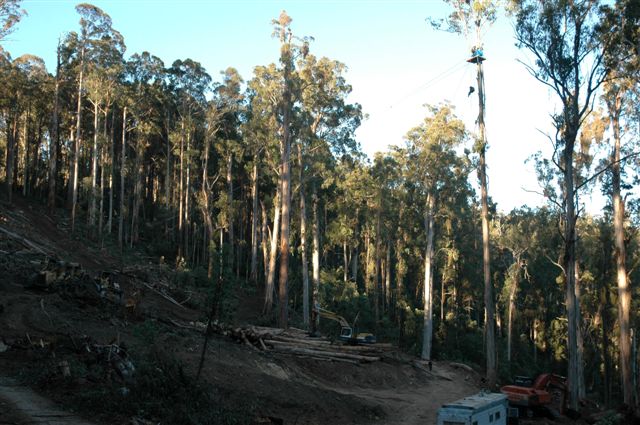
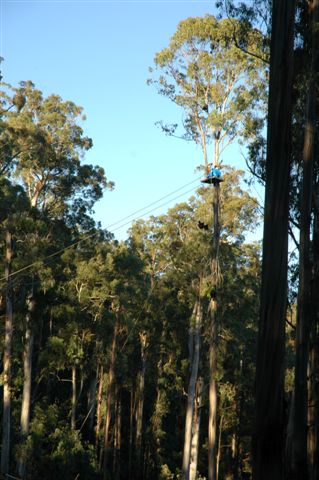
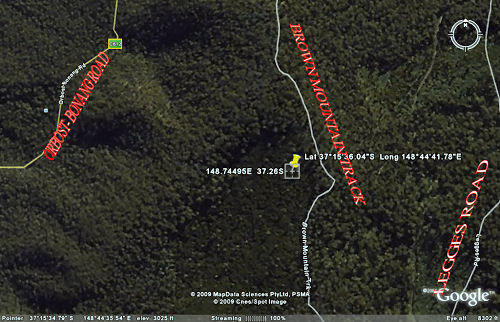

 Imagine living hand to mouth already, barely squeaking by. Come Feb 1 the State has warned you may not see another check for months. No Rent money, no money for food for medicine and even worse for some of the disabled, your Caregiver that comes by daily to feed, clean, shop, and generally make sure you are cared for, isn't coming anymore.
Imagine living hand to mouth already, barely squeaking by. Come Feb 1 the State has warned you may not see another check for months. No Rent money, no money for food for medicine and even worse for some of the disabled, your Caregiver that comes by daily to feed, clean, shop, and generally make sure you are cared for, isn't coming anymore.
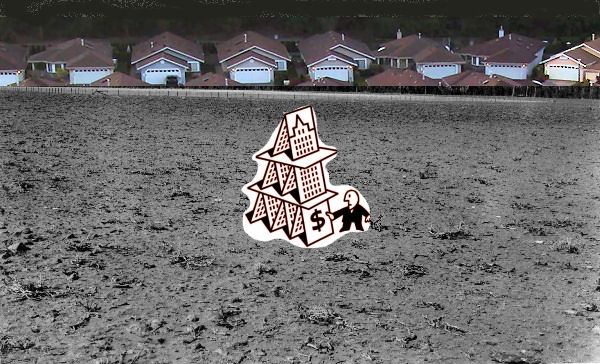
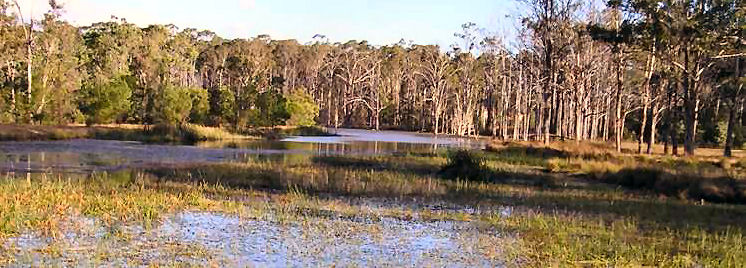
 According to Geoff Brown, spokesman for the Residents' Action group, "Several Councillors who supported Delfin Lend Lease, including the Mayor, failed to declare a pecuniary interest. Council Officers presented a clearly misleading email to Councilors prior to the meeting from Peter Goth, a Dept of Planning bureaucrat, claiming the Planning Minister had limited authority to rezone and protect more bushland. Council officers also led councilors to believe there would be further community consultation on the Agreement and that there was also the spurious claim by Planners that the NSW Government may at any time put restrictions on how Councils can collect and use developer levies and therefore the need to rush and lock in this decision."
According to Geoff Brown, spokesman for the Residents' Action group, "Several Councillors who supported Delfin Lend Lease, including the Mayor, failed to declare a pecuniary interest. Council Officers presented a clearly misleading email to Councilors prior to the meeting from Peter Goth, a Dept of Planning bureaucrat, claiming the Planning Minister had limited authority to rezone and protect more bushland. Council officers also led councilors to believe there would be further community consultation on the Agreement and that there was also the spurious claim by Planners that the NSW Government may at any time put restrictions on how Councils can collect and use developer levies and therefore the need to rush and lock in this decision."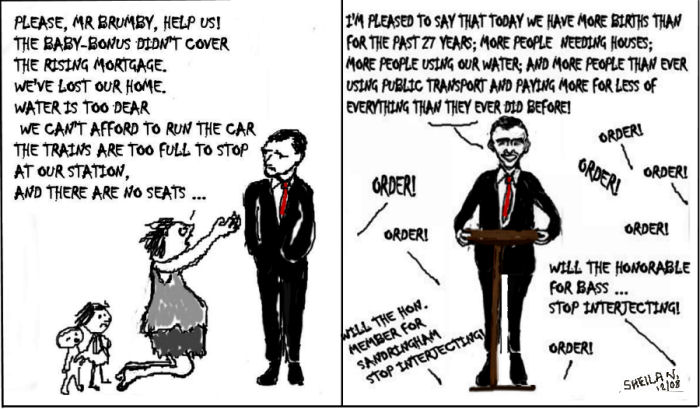

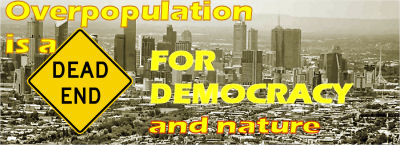
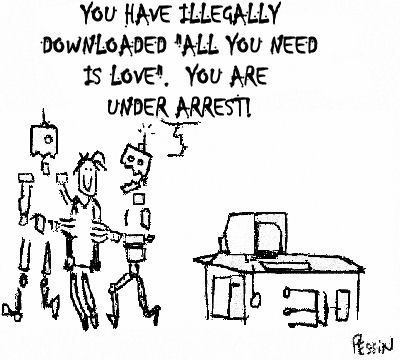
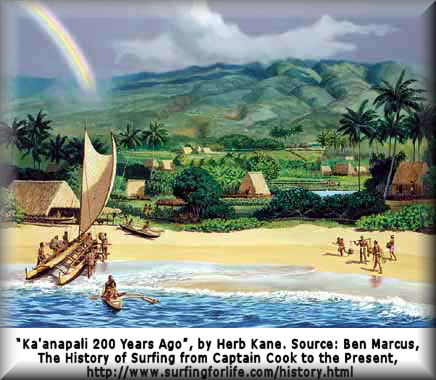
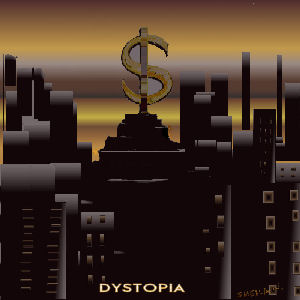
 What has happened to us that we have to get children to express our deepest values and concerns because we have been conditioned to repress them for political reasons?
What has happened to us that we have to get children to express our deepest values and concerns because we have been conditioned to repress them for political reasons?

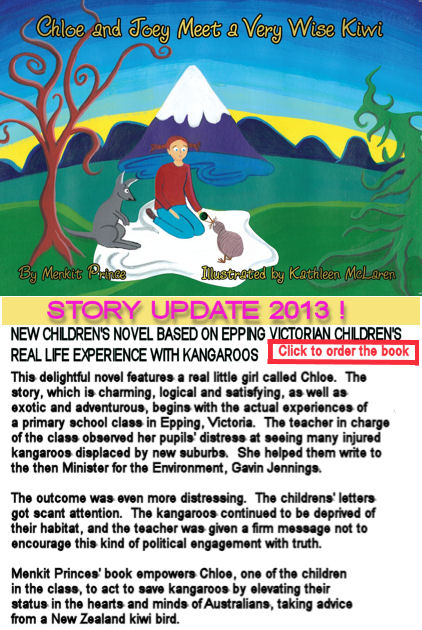


 (Photo of Mary Drost) The Brumby Government tried to undermine this crucial Melbourne Rally and to avoid criticism by announcing they were modifying their offensive Bill, so the mainstream journalists stayed away. But the alternative press is growing and we will not fall for such simple ploys. PEOPLE POWER AT WORK See
(Photo of Mary Drost) The Brumby Government tried to undermine this crucial Melbourne Rally and to avoid criticism by announcing they were modifying their offensive Bill, so the mainstream journalists stayed away. But the alternative press is growing and we will not fall for such simple ploys. PEOPLE POWER AT WORK See  Today Victorian activist groups working together stopped legislation which could have defined any local councillor who may have previously actively opposed a particular development proposal as an 'interested party' and hence ineligible to vote. Demonstrators wore tape over their mouths on the steps of Victoria's Parliament.
Today Victorian activist groups working together stopped legislation which could have defined any local councillor who may have previously actively opposed a particular development proposal as an 'interested party' and hence ineligible to vote. Demonstrators wore tape over their mouths on the steps of Victoria's Parliament.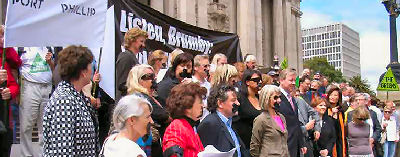
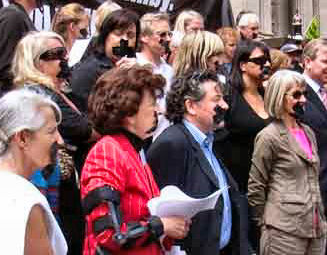
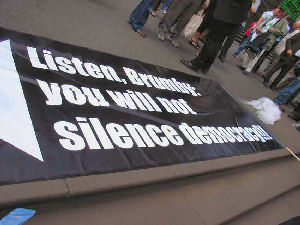

 "VCAT unelected, unaccountable and system has lost all respect from community." VCAT is Victoria's Civil and Administrative Tribunal. (Australia)
"VCAT unelected, unaccountable and system has lost all respect from community." VCAT is Victoria's Civil and Administrative Tribunal. (Australia) Victorian Planning dictators aim at iconic Macedon Ranges (Hanging Rock region). Where will it end? Call to Victorians and the world ....
Victorian Planning dictators aim at iconic Macedon Ranges (Hanging Rock region). Where will it end? Call to Victorians and the world ....
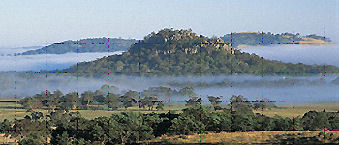
 In 1845 the Mornington Peninsula was thick with wildlife: herds of kangaroos, wombats, wallabies, many echidnas and koalas and glorious birds, all unused to man and quite tame and inquisitive. ...wonderful trees, abundance of silver wattles, when in blossom, gilded the country and filled the air deliciously with their sweetness. Now population growth is turning the Peninsula into a desert. Research and graphs by Malcolm Legg and Hans Brunner.
In 1845 the Mornington Peninsula was thick with wildlife: herds of kangaroos, wombats, wallabies, many echidnas and koalas and glorious birds, all unused to man and quite tame and inquisitive. ...wonderful trees, abundance of silver wattles, when in blossom, gilded the country and filled the air deliciously with their sweetness. Now population growth is turning the Peninsula into a desert. Research and graphs by Malcolm Legg and Hans Brunner. 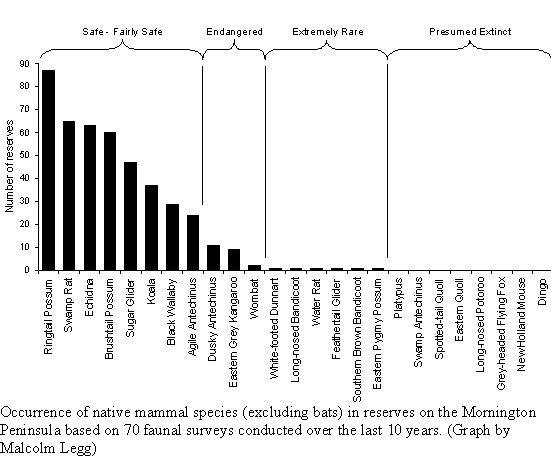
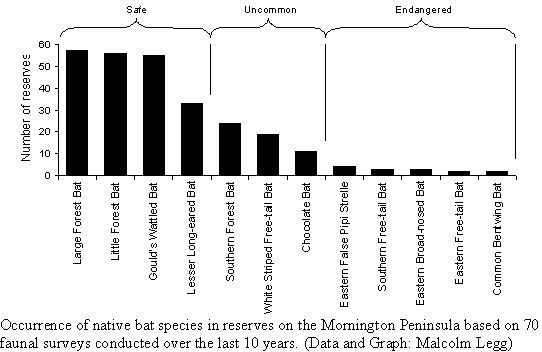


 Film: "Australia's Murray River Murray Darling Disaster"
Film: "Australia's Murray River Murray Darling Disaster" Lateline film on COAG, "New Deadline to Save Murray Darling" 7 August 2008)
Lateline film on COAG, "New Deadline to Save Murray Darling" 7 August 2008)
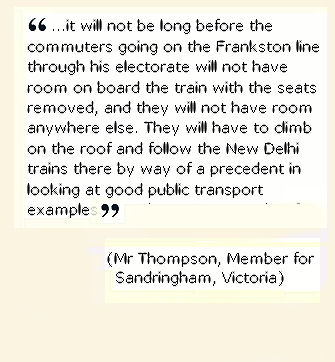


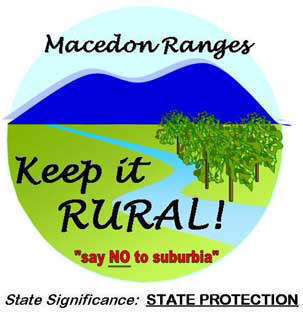 We need look no further than New South Wales and the Wollongong scandal for confirmation that money can buy governments and decisions, particularly planning decisions. Yet NSW has an Independent Commission Against Corruption [ICAC], something we don't have in Victoria.
We need look no further than New South Wales and the Wollongong scandal for confirmation that money can buy governments and decisions, particularly planning decisions. Yet NSW has an Independent Commission Against Corruption [ICAC], something we don't have in Victoria. For his political courage in speaking out against undemocratic, but mainstream media and government endorsed, growth, actor, Geoffrey Rush deserves particular historic recognition from Australians. He launched a new website: Marvellous Melbourne at https://marvellousmelbourne.org. Candobetter.net editor 12 January 2017: Unfortunately, eight years later it is no longer maintained, so we have removed the link. Candobetter.net remains one of its memorials. However the problem those optimistic protesters set out to solve has grown every year into a behemoth that threatens many of our institutions and certainly our way of life, all over Australia.
For his political courage in speaking out against undemocratic, but mainstream media and government endorsed, growth, actor, Geoffrey Rush deserves particular historic recognition from Australians. He launched a new website: Marvellous Melbourne at https://marvellousmelbourne.org. Candobetter.net editor 12 January 2017: Unfortunately, eight years later it is no longer maintained, so we have removed the link. Candobetter.net remains one of its memorials. However the problem those optimistic protesters set out to solve has grown every year into a behemoth that threatens many of our institutions and certainly our way of life, all over Australia. 
Recent comments